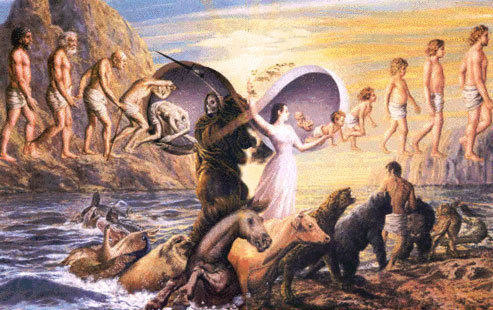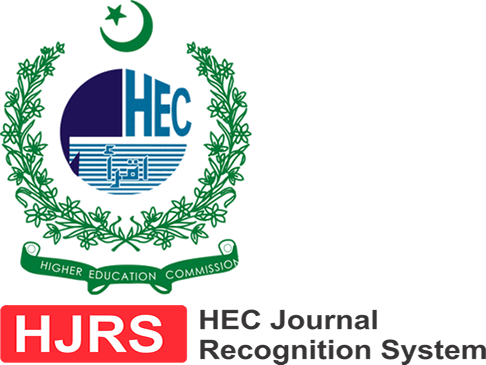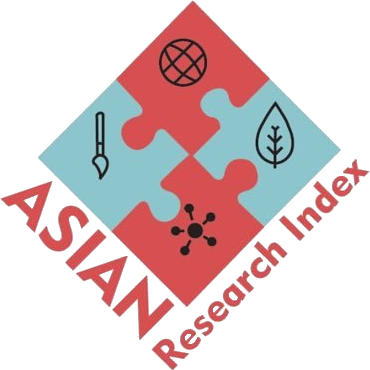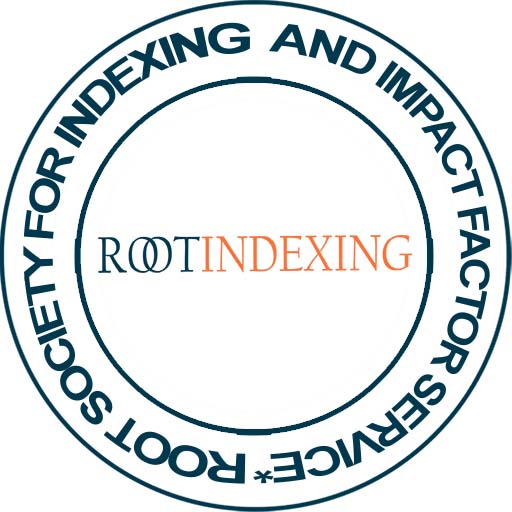ہندو دھرم میں نجات کے طريق ثلاثہ کا اسلام کے ساتھ تقابل اور اجتماعی اثرات، تحقیقی و تقابلی جائزہ
COMPARISON AND COLLECTIVE EFFECTS OF THREE WAYS OF SALVATION IN HINDUISM WITH ISLAM, RESEARCH AND COMPARATIVE ANALYSIS
DOI:
https://doi.org/10.5281/zenodo.10985357Keywords:
Collective effects, Salvation, Hinduism, Islam.Abstract
The literal meaning of salvation is to get rid of or to be saved, i.e. to be saved or to be saved from any pain, suffering or loss and loss. The Qur'anic word "falah" includes the achievements of this world and the hereafter. While Salvation is a part of the meaning of the word "prosperity". The Islamic code of life makes it necessary to achieve the welfare of this world and the hereafter. While the main problem of Hinduism is to get rid of the Joni Chakra. It is not necessary for them to ensure the salvation of the world. Therefore, the three ways of salvation in Hinduism are a link in the same chain, which consists of knowledge, action and austerity. In Islam, the importance of these three teachings for salvation is Muslim, but the practical nature is different. Along with showing Islam as a complete code of life, putting forward this similarity so that the path of tolerance and harmony is paved and attraction towards the religion of Islam increases, the paper under review is a link in this chain.
References
القرآن الکریم،سورۃیونس،آیت92۔
القرآن الکریم،سورۃالانبیاء،آیت88۔
ابن منظور الافریقی،لسان العرب(ایران:مطبوعہ نشتر ادب الحوزہ،1405ھ)،15/305
Encyclopedia of Religion and Ethics (New York), 149
القرآن الکریم،سورۃ الاعراف،آیت8، 9۔
احمد عبداللہ المسدوسی، مذاہب عالم،(لاہور:سعادت آرٹس پریس،2002ء)۲۳۷۔
Jawahrlal Nehru, The Discovery of India (Bombay:Asia publishing house) 73.
Jawahrlal Nehru, The Discovery of India, 63
. Dr.Tara Cahnd, Infulence of Islam on Indian Culture (Lahore: Book Traders, 1979) 2.
گستاؤلی بان، تمدن ہند، مترجم: علی بلگرامی (لاہور: مقبول اکیڈمی،1962ء)203۔
George Howlls,The Soul of Indian (London: Kingsgate press, 1913) 66.
Tara Chand, Infulence of Islam on India Culture,2, 3.
Tara Chand, Influence of Islam on Indian Culture, 11.
Encyclopedia Britanica, 5/935.
Tara Chand, Influence of Islam on Indian Culture, 11,12.
Ibid, 14, 15.
Tara Chand, Influence of Islam on India Culture, 15.
G.T Garratt, The Legacy of India, (Oxford: Clarenden Press, 1977) 81.
ول ڈیورانٹ،ہندوستان،مترجم: طیب رشید(لاہور:تخیلقات ٹیمپل روڈ،1995ء)،1150۔
ذاکر نائیک ،تقابل ادیان، مترجم:فیضان محمد (لاہور:اسلام بک ڈپو،س ن)108، 109۔
ثریمدبھگوت گیتا،ادھیائے،9 شلوک(نئی دہلی:نیوسٹینڈرڈ پبلیکیشنز،1957ء)184۔
ذاکر نائیک، تقابل ادیان،110۔
سوامی دیانند سرسوتی،ستیارتھ پرکاش(لاہور:نگارشات پبلشرز،1927ء)1/95۔
سوامی دیانند سرسوتی،ستیارتھ پرکاش،1/211، 212۔
R.E Hume, The Worlds Living Religious, (Edinberg: T&T Clark, 1927) 28.
رائے روشن لعل،بھگوت گیتا(لاہور:فکشن ہاؤس،2013ء)186۔
ڈاکٹر ذاکرنائیک،تقابل ادیان، 112۔
Tara Chand, Influence of Islam on Indian, culture, 47.
Jawaharlal Nehru, The Discovery of India, 98.
سریندرناتھ داس گپتا،تاریخ ہندی فلسفہ(حیدرآباد:دار طبع جامعہ عثمانیہ،1944ء)2/662۔
رائے روشن لال،بھگوت گیتا،70۔
نگینا سنگھ،ہندوتصوف(دہلی:1901ء)20، 21۔
ابوالاعلیٰ مودودی،الجہاد فی الاسلام(لاہور:ادارہ ترجمان القرآن۔1986ء)356۔
القرآن الکریم،سورۃالعلق،آیت اتا5۔
ابن ماجة أبو عبد الله محمد بن يزيد القزويني،سنن ابن ماجہ(دار إحياء الكتب العربية - فيصل عيسى البابي الحلبي،س ن)رقم الحدیث229۔
القرآن الکریم،سورۃ الزلزال،آیت7، 8۔
القرآن الکریم،سورۃالاعلیٰ،آیت14۔

Downloads
Published
How to Cite
License
Copyright (c) 2024 AL MISBAH RESEARCH JOURNAL

This work is licensed under a Creative Commons Attribution 4.0 International License.
AL-MISBAH Research Journal is full open access and licensed under Creative Commons Attribution 4.0 International License; and Published by: Research Institute of Culture & Ideology (REINCI), Islamabad, Pakistan. This allows the research community and the general public to gain unlimited, free and immediate access to scholarly articles, and to reuse the content freely provided that proper attribution is given to the original authors.









